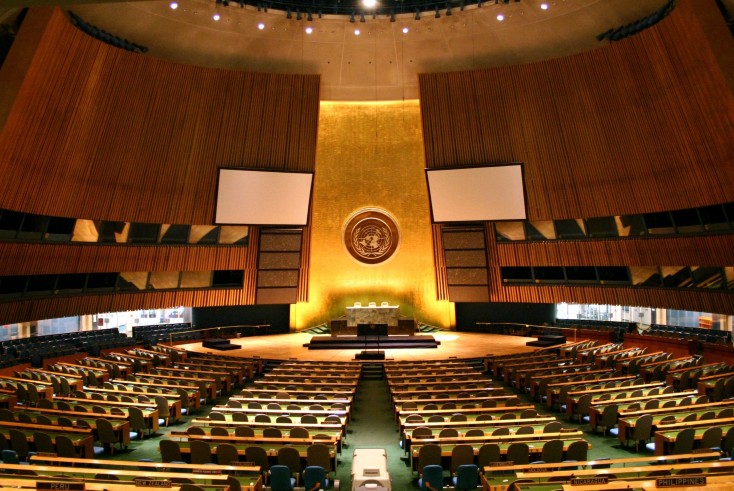UN secretary-general: Ad industry needs to do more to combat disinformation

At a speech at the United Nations (UN) General Assembly, secretary-general António Guterres urged urgent action from media, advertisers, tech companies and governments to curb harms from the spread of misinformation and disinformation online.
Guterres’ speech marked the UN’s launch of Global Principles for Information Integrity, a framework for co-ordinated action to improve the safety of international information spaces.
“At a time when billions of people are exposed to false narratives, distortions and lies, these principles lay out a clear path forward, firmly rooted in human rights, including the rights to freedom of expression and opinion,” said Guterres.
He stated misinformation, disinformation and hate speech are fuelling global conflict, threatening democracy and human rights, and undermining public health and climate action. And, he added, AI is supercharging the risks inherent in our contemporary digital information ecosystem.
The ability for AI to create and spread misinformation and disinformation is not just a concern of the UN, but of the public more broadly. A UK-wide survey last year found the spread of misinformation and fake news was the public’s top concern with AI. Meanwhile, a poll of news editors found that nearly all (97%) agreed the risk to the public from AI-generated misinformation is “greater than ever before”.
More generally, misinformation is a significant concern across demographics in the UK.
Human rights first
The comments come soon after Guterres criticised the media and advertising industries for their complacency in tackling the climate crisis and echo those sentiments, albeit on a different subject.
Proposals in the Global Principles for Information Integrity framework target various stakeholders across the digital media landscape.
For advertisers, it recommends demanding transparency in the digital advertising process from the tech sector to ensure ad budgets do not inadvertently fund disinformation.
This has been a lingering issue for advertisers. News trustworthiness ratings company NewsGuard has repeatedly drawn attention to brands incidentally providing advertising revenue to fake news sites through insufficiently considering programmatic advertising strategies. The company has also described how AI has “supercharged” the spread of misinformation online.
According to the framework, tech companies should seek business models that do not rely on programmatic advertising and do not “prioritise engagement above human rights, privacy and safety”. Rather, users should have “greater choice and control” over their online experience and personal data.
AI should be developed in a transparent and safe matter, the framework recommends.
Furthermore, governments, tech companies, AI developers and advertisers all have a responsibility to “protect and empower” children.
In a statement, co-chairs of the Conscious Advertising Network, Harriet Kingaby and Jake Dubbins, called the framework “a huge step forward in the fight against misinformation and hate speech”.
“At a time when polarisation, hate and misinformation are on the march, set against a backdrop of the climate crisis, the rise of unregulated AI and elections all over the world, we call on the entire advertising and media industry to lean in and work with us to adopt these principles,” they said.
The Conscious Advertising Network was consulted by the UN in developing the framework.
North Star
In a conversation with The Media Leader, Dubbins explained that the framework should be seen more as a “North Star” than something that is “going to get regulated tomorrow”.
Given the UN has no enforcement power, he conceded that the framework is not likely to yield immediate progress, although he noted that the UN “has great convening power to put this on the agenda properly”.
Dubbins added: “I don’t think platforms will do anything until they’re regulated, though.”
The Global Principles for Information Integrity will be used as a resource for UN member states ahead of the Summit of the Future conference held in New York in September.
It can be viewed in full here.




